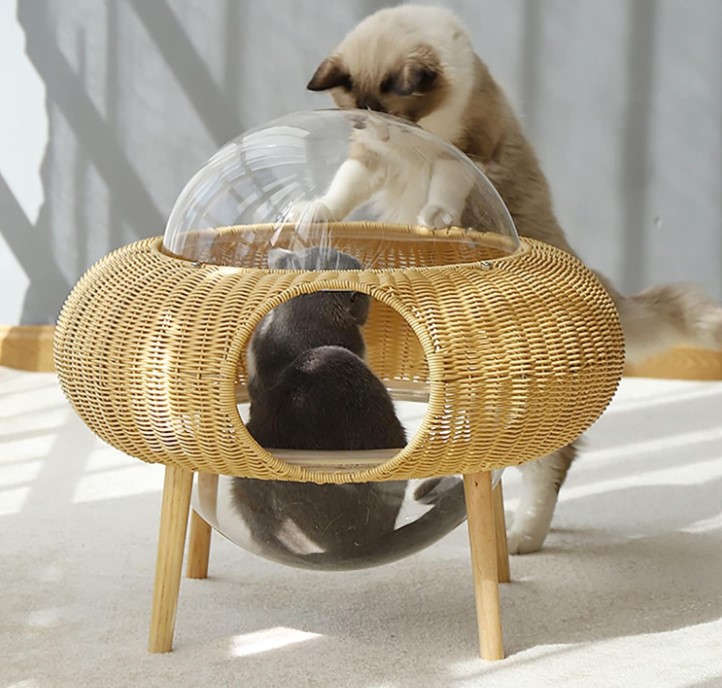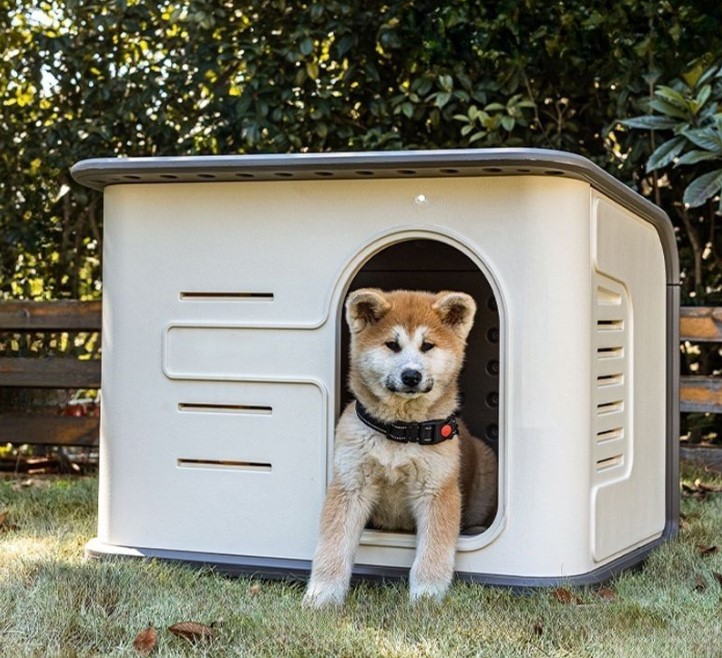Raising a Confident and Affectionate Cat through Socialization

Welcome to the world of kitten socialization! As a responsible and caring cat parent, you want to ensure that your 3-month-old kitten grows into a confident and affectionate cat. Socialization is a critical aspect of a kitten’s development, and it’s essential to start early to avoid behavioral problems later in life. In this article, we’ll guide you through the importance of socialization, the best techniques to use, and provide practical tips for successful socialization.
Socialization is not just about exposing your kitten to new experiences, but it’s about creating a positive association with those experiences. A well-socialized kitten is more likely to be curious, playful, and friendly, whereas a poorly socialized kitten may become fearful, anxious, or even aggressive. By understanding the critical period of socialization and the consequences of inadequate socialization, you can take the necessary steps to raise a well-adjusted and confident cat.
In the following sections, we’ll delve into the best methods for socializing your kitten with people, other animals, and their environment. We’ll explore positive reinforcement training, desensitization, and counterconditioning, and provide you with practical advice and tips for successful socialization. By the end of this article, you’ll be equipped with the knowledge and skills to raise a happy and healthy cat that will bring joy to your life for years to come.
1. Why Socialization is Crucial for Kittens
Socialization is a critical aspect of a kitten’s development, playing a significant role in shaping their behavior and personality. During the early stages of life, kittens are most receptive to new experiences, and socialization helps them develop essential skills for interacting with their environment and other animals. A well-socialized kitten is more likely to be confident, curious, and friendly, whereas a poorly socialized kitten may become fearful, anxious, or aggressive.
Socialization has a profound impact on a kitten’s behavior and development. It helps them develop emotional resilience, reducing the risk of anxiety and fear-based behaviors. Socialization also influences a kitten’s ability to form healthy bonds with humans and other animals, which is essential for their overall well-being. Moreover, socialization helps kittens develop problem-solving skills, adapt to new environments, and learn to cope with stress and uncertainty.
The importance of socialization cannot be overstated. Kittens that are not adequately socialized may develop behavioral problems, such as fear aggression, which can be challenging to address. In addition, poorly socialized kittens may be more prone to health issues, such as stress-related illnesses. By investing time and effort in socializing your kitten, you can help them develop into a happy, healthy, and well-adjusted cat that will thrive in their environment.
The Critical Period of Socialization
The critical period of socialization in kittens refers to the window of time when they are most receptive to new experiences and learning. During this period, kittens are highly sensitive to their environment and are rapidly developing their social skills, behaviors, and personalities. The critical period of socialization typically begins at around 2-3 weeks of age and lasts until around 12-14 weeks of age. This is a crucial time for kittens to learn about their environment, people, and other animals, and to develop essential skills for interacting with their world.
Starting early socialization is essential because kittens are most impressionable during this period. If kittens are not adequately socialized during this time, they may develop fear or anxiety responses to new experiences, which can be challenging to overcome. In addition, kittens that are not socialized early may miss out on essential learning opportunities, which can impact their ability to form healthy bonds with humans and other animals.
Early socialization sets the foundation for a kitten’s future behavior and development. By exposing kittens to a variety of positive experiences and environments, you can help them develop confidence, curiosity, and a strong sense of self. This, in turn, can help them adapt to new situations and environments, and reduce the risk of anxiety and fear-based behaviors. By understanding the critical period of socialization and starting early, you can give your kitten the best possible start in life.
Consequences of Inadequate Socialization
Inadequate socialization in kittens can have long-lasting and far-reaching consequences for their behavior and development. One of the most significant consequences is fear aggression, where a kitten becomes fearful and defensive in response to new experiences or environments. This can lead to hissing, growling, and even biting, making it challenging for them to interact with humans and other animals. Fear aggression can be difficult to address, and in severe cases, may require professional intervention.
In addition to fear aggression, inadequate socialization can also lead to anxiety in kittens. Anxiety can manifest in a range of behaviors, including pacing, panting, and hiding. Kittens that are not adequately socialized may become overly attached to their owners, leading to separation anxiety, or may develop phobias, such as a fear of loud noises or strangers. Anxiety can significantly impact a kitten’s quality of life, making it essential to prioritize socialization from an early age.
Inadequate socialization can also have a broader impact on a kitten’s overall well-being. Kittens that are not exposed to a variety of positive experiences and environments may develop behavioral problems, such as destructive behavior, or may become more prone to illnesses, such as stress-related disorders. Furthermore, inadequate socialization can affect a kitten’s ability to form healthy bonds with humans and other animals, leading to social isolation and loneliness. By understanding the consequences of inadequate socialization, you can take steps to ensure your kitten receives the socialization they need to thrive.
2. Choosing the Right Socialization Techniques

When it comes to socializing your 3-month-old kitten, choosing the right techniques is crucial. Two of the most effective methods are positive reinforcement and desensitization. Positive reinforcement involves rewarding your kitten with treats, praise, and affection when they exhibit desired behaviors, such as approaching a new person or object. This approach helps to build confidence and trust, and encourages your kitten to repeat the desired behavior.
Desensitization, on the other hand, involves gradually exposing your kitten to new experiences or stimuli in a controlled and gradual manner. This can help to reduce fear and anxiety responses, and can be particularly effective for kittens that are shy or fearful. By starting with small, manageable steps, you can help your kitten become comfortable with new experiences, such as loud noises or strangers.
Both positive reinforcement and desensitization are gentle, effective, and humane approaches to socialization. By incorporating these techniques into your socialization plan, you can help your kitten develop into a confident, curious, and friendly cat. Remember to always prioritize your kitten’s comfort and safety, and to approach socialization in a patient and gentle manner. With the right techniques and a little patience, you can help your kitten thrive.
Positive Reinforcement Training
Positive reinforcement training is a powerful tool for socializing your kitten and encouraging good behavior. This approach focuses on rewarding desired behaviors, rather than punishing undesired ones. By doing so, you can build trust and confidence with your kitten, and encourage them to repeat the desired behavior. Positive reinforcement training can be used to teach a range of behaviors, from basic obedience commands to more complex social skills.
To get started with positive reinforcement training, you’ll need some tasty treats and a quiet, distraction-free space. Begin by choosing a specific behavior you want to encourage, such as sitting or approaching a person. As soon as your kitten exhibits the desired behavior, reward them with a treat and praise. Be sure to use a consistent command or cue, such as ‘sit’ or ‘come’, to help your kitten associate the behavior with the reward.
Remember to keep training sessions short and fun, and to end on a positive note while your kitten is still engaged. As your kitten becomes more confident, you can gradually phase out the treats and use praise and affection as rewards. By using positive reinforcement training, you can build a strong bond with your kitten and help them develop into a well-behaved and confident cat.
Desensitization and Counterconditioning
Desensitization and counterconditioning are two powerful techniques used to help your kitten overcome fears and anxieties. Desensitization involves gradually exposing your kitten to the feared object or situation, starting from a distance or at a low level, and gradually increasing the intensity or proximity. This helps your kitten to become comfortable with the stimulus and reduces their anxiety response.
Counterconditioning, on the other hand, involves pairing the feared object or situation with a pleasant or rewarding experience. This helps to create a positive association with the stimulus, and can help to overcome fear and anxiety responses. For example, if your kitten is fearful of loud noises, you can start by playing a recording of the noise at a low volume, and then rewarding your kitten with treats and praise. Gradually, you can increase the volume, while continuing to provide positive reinforcement.
By using desensitization and counterconditioning, you can help your kitten to overcome fears and anxieties, and develop a more confident and calm demeanor. It’s essential to approach these techniques with patience and care, and to tailor your approach to your kitten’s individual needs and personality. With time and practice, you can help your kitten to feel more comfortable and confident in the face of previously feared stimuli.
3. Socializing Your Kitten with People
Socializing your kitten with people is a critical aspect of their development. When done correctly, it can help your kitten become confident, friendly, and affectionate around humans. One of the best ways to socialize your kitten with people is through handling. Gentle, gentle handling can help your kitten become comfortable with human touch and reduce their stress levels. Start with short sessions, such as 5-10 minutes, and gradually increase the duration as your kitten becomes more comfortable.
Interaction is another essential aspect of socializing your kitten with people. This can include playing with toys, such as feather wands or laser pointers, or simply engaging in quiet activities like reading or watching TV. The goal is to expose your kitten to a variety of people and experiences, helping them to become confident and calm in the presence of humans. Remember to always approach interactions with your kitten in a calm and gentle manner, and to reward them with treats and praise for good behavior.
By socializing your kitten with people, you can help them develop into a well-adjusted and affectionate cat. This can also reduce the risk of behavioral problems, such as fear aggression or anxiety, and make it easier for your kitten to adapt to new environments and situations. With patience, consistency, and positive reinforcement, you can help your kitten develop strong bonds with people and set them up for a lifetime of happiness and well-being.
Handling and Touch
Handling and touch are essential aspects of socializing your kitten with people. When done correctly, it can help your kitten become comfortable with human touch and reduce their stress levels. To handle your kitten safely and gently, start by supporting their body and lifting them carefully. Hold your kitten securely but not too tightly, making sure to provide adequate support for their legs and body.
When handling your kitten, it’s essential to pay attention to their body language and behavior. If they appear stressed or try to escape, it’s best to give them a break and let them come back to you when they’re ready. Gentle touch, such as stroking or petting, can help your kitten become comfortable with human contact. Start with short sessions and gradually increase the duration as your kitten becomes more comfortable.
Remember to handle your kitten with care, as they can be fragile and easily injured. Avoid picking them up by their tail or legs, and never handle them roughly or violently. By handling your kitten safely and gently, you can help them develop a positive association with human touch and build a strong bond between you and your kitten. With patience and consistency, your kitten will learn to trust and enjoy human contact, setting them up for a lifetime of happiness and well-being.
Interaction and Play
Interaction and play are crucial components of socializing your kitten with people. Play helps to strengthen the bond between you and your kitten, while also providing exercise and mental stimulation. Interactive play, such as chasing a laser pointer or feather toy, can help to burn off excess energy and satisfy your kitten’s natural hunting instinct.
In addition to physical exercise, play also provides an opportunity for social interaction and learning. During play, your kitten can learn important skills, such as boundaries and manners, and develop their problem-solving abilities. Interactive play also helps to build trust and confidence, as your kitten learns to rely on you for fun and stimulation.
By engaging in regular play and interaction with your kitten, you can help to create a strong and lasting bond. This can also reduce the risk of behavioral problems, such as boredom and destructive behavior, and make it easier for your kitten to adapt to new environments and situations. With a little creativity and patience, you can create a fun and engaging play routine that will benefit both you and your kitten.
4. Socializing Your Kitten with Other Animals
Socializing your kitten with other animals is an essential part of their development. This helps them to become confident and calm in the presence of other pets, and can reduce the risk of behavioral problems, such as fear or aggression. When socializing your kitten with other cats, it’s essential to start with slow and controlled introductions, allowing them to become familiar with each other’s scents and sounds.
When introducing your kitten to other pets, such as dogs or small mammals, it’s essential to take a gradual and gentle approach. Start with visual introductions, allowing them to see each other from a safe distance, and then gradually increase their interaction time. Remember to monitor their behavior and body language, and intervene if you notice any signs of stress or fear.
By socializing your kitten with other animals, you can help them to develop important skills, such as communication and conflict resolution. This can also help to reduce the risk of behavioral problems, and make it easier for your kitten to adapt to new environments and situations. With patience, consistency, and positive reinforcement, you can help your kitten to develop a strong and confident personality, and a lifelong appreciation for other animals.
Introducing Your Kitten to Other Cats
Introducing your kitten to other cats requires patience, caution, and a gradual approach. A slow and controlled introduction is essential to prevent stress, fear, and aggression. Start by keeping the cats separated and allowing them to become familiar with each other’s scents and sounds. You can do this by swapping their bedding, toys, or feeding them on opposite sides of a door.
Once the cats seem comfortable with each other’s presence, it’s time for a visual introduction. Keep them separated by a barrier, such as a baby gate, and allow them to see each other without being in the same space. Monitor their behavior and body language, and if you notice any signs of stress or aggression, it’s best to slow down the introduction process. Gradually increase their interaction time, always supervising their interactions to ensure a safe and positive experience.
Supervised interactions are crucial to ensure the safety and well-being of both cats. Start with short interactions, such as 5-10 minutes, and gradually increase the time as they become more comfortable with each other. Remember to reward good behavior with treats and praise, and to intervene if you notice any signs of stress or aggression. With patience, consistency, and positive reinforcement, you can help your kitten develop a strong and confident personality, and a lifelong friendship with other cats.
Socializing with Dogs and Other Pets
Socializing your kitten with dogs and other pets is an essential part of their development. It helps them to become confident and calm in the presence of other animals, and can reduce the risk of behavioral problems, such as fear or aggression. When socializing your kitten with dogs, it’s essential to start with slow and controlled introductions, allowing them to become familiar with each other’s scents and sounds.
It’s also important to ensure that the dog is calm and well-behaved, and that the introduction is done in a safe and controlled environment. You can start by keeping the animals separated and allowing them to see each other from a distance, then gradually increase their interaction time. Remember to monitor their behavior and body language, and to intervene if you notice any signs of stress or fear.
Socializing your kitten with other pets, such as small mammals or birds, can also be beneficial for their development. It helps them to become confident and calm in the presence of other animals, and can reduce the risk of behavioral problems. When socializing your kitten with other pets, it’s essential to start with slow and controlled introductions, and to ensure that the animals are compatible and safe to be together. With patience, consistency, and positive reinforcement, you can help your kitten develop a strong and confident personality, and a lifelong appreciation for other animals.
5. Tips and Tricks for Successful Socialization
Successful socialization requires a well-planned and structured approach. One of the most effective ways to ensure successful socialization is to create a socialization plan tailored to your kitten’s needs and personality. This plan should outline specific goals and objectives, such as introducing your kitten to new people, places, and experiences, and should include a schedule for achieving these goals.
Tracking progress is also crucial to successful socialization. By monitoring your kitten’s behavior and reactions to new experiences, you can identify areas that require more attention and adjust your socialization plan accordingly. Keep a journal or log to record your kitten’s progress, and be sure to reward good behavior with treats and praise. This will help to reinforce positive behaviors and encourage your kitten to continue exploring and learning.
Remember to be patient and consistent when socializing your kitten. Socialization is a process that takes time and effort, and it’s essential to go at your kitten’s pace. Don’t push your kitten beyond their comfort zone, and be sure to provide plenty of positive reinforcement and encouragement. By following these tips and tricks, you can help your kitten develop a strong and confident personality, and set them up for a lifetime of happiness and success.
Creating a Socialization Plan
Creating a socialization plan for your kitten is a crucial step in ensuring they develop into a confident and well-adjusted adult cat. A socialization plan should be tailored to your kitten’s individual needs and personality, and should take into account their age, breed, and temperament. Start by identifying your kitten’s strengths and weaknesses, as well as their likes and dislikes. This will help you determine which areas of socialization need the most attention.
Next, set specific goals and objectives for your kitten’s socialization. For example, you may want to introduce your kitten to new people, places, and experiences, or help them become more confident in certain situations. Break down these goals into smaller, manageable tasks, and create a schedule for achieving them. Be sure to include a variety of activities and exercises, such as playtime, handling, and exposure to new sights and sounds.
Remember to be flexible and adjust your socialization plan as needed. Every kitten is different, and what works for one kitten may not work for another. By regularly monitoring your kitten’s progress and making adjustments to your plan, you can ensure that your kitten receives the socialization they need to thrive. With a well-planned and executed socialization plan, you can help your kitten develop into a happy, confident, and well-adjusted adult cat.
Tracking Progress and Overcoming Obstacles
Tracking your kitten’s progress is a crucial step in the socialization process. By monitoring their behavior and reactions to new experiences, you can identify areas that require more attention and adjust your socialization plan accordingly. Keep a journal or log to record your kitten’s progress, noting their successes and challenges, as well as any changes in their behavior or personality.
Regularly tracking your kitten’s progress will also help you to identify any obstacles that may arise during the socialization process. For example, your kitten may be fearful or anxious in certain situations, or they may be resistant to new experiences. By identifying these obstacles, you can develop strategies to overcome them, such as gradually introducing your kitten to new experiences or providing positive reinforcement and encouragement.
Remember to be patient and flexible when overcoming obstacles. Socialization is a process that takes time and effort, and it’s essential to go at your kitten’s pace. Don’t push your kitten beyond their comfort zone, and be sure to provide plenty of positive reinforcement and encouragement. By tracking your kitten’s progress and overcoming obstacles, you can help your kitten develop into a confident and well-adjusted adult cat.
How long does socialization last for a kitten?
Socialization is a critical period in a kitten’s life that lasts from around 2-3 weeks to 12-14 weeks of age. During this time, kittens are most receptive to new experiences and learning.
Can I socialize my kitten too much?
While socialization is essential for kittens, over-socialization can be overwhelming and stressful. It’s essential to strike a balance and provide plenty of breaks and quiet time for your kitten to relax and recharge.
What if my kitten is shy or fearful?
If your kitten is shy or fearful, it’s essential to approach socialization gradually and gently. Start with small, positive experiences, and gradually increase the intensity and duration of socialization. Reward your kitten with treats and praise for their bravery.
Can I socialize my kitten with other pets?
Yes, socializing your kitten with other pets, such as dogs, can be beneficial for their development. However, it’s essential to ensure that the other pets are calm and well-behaved, and that the introduction is done slowly and under controlled circumstances.




